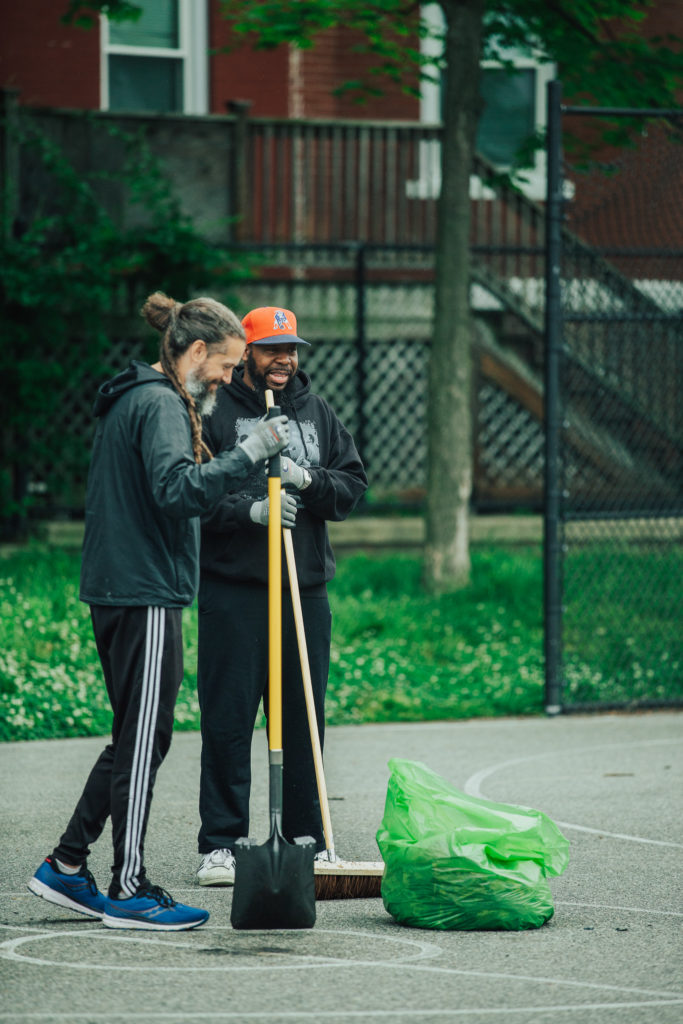The history of Tremont Temple Baptist Church plays a significant part in how Send Relief uses this remarkable building as a home base for its Boston ministry center.
Originally built in 1827 as a theater, the church quickly became a stronghold for abolitionists in thought, word and deed. It was founded as the first integrated place of worship in the United States “with free seats for everyone, rich or poor, black or white—a Sabbath home for the stranger and traveler” and a church in which “all who practice slavery or justify it [were] excluded and [refused] communion.”
Abraham Lincoln spoke on its steps before his presidential election. Sam Houston graced its pulpit with a fiery speech against slavery. Inside its doors, Ralph Waldo Emerson praised famed abolitionist John Brown after his lynching because he led a slave revolt. Harriet Tubman addressed a multitude of supporters from its entrance, denouncing colonization and sharing the successes of the Underground Railroad. Frederick Douglass led an abolitionist meeting in its halls. He was mobbed by racist police and picketers after.
In 1863, Douglass also conducted the very first reading of the Emancipation Proclamation on the Temple steps, where crowds erupted with joy after his account: “The occasion was one of both hope and fear. We were watching…by the dim lights of the stars for the dawn of a new day. We were longing for the answer to the agonizing prayers of centuries…and soon that church was packed from doors to pulpit, and this meeting did not break up till near the dawn of day. It was one of the most thrilling occasions I ever witnessed and a worthy celebration of the first step on the part of the nation in its departure from the [bondage] of ages.”
Douglass continued his legacy at Tremont, despite the church burning down—they rebuilt it three times, with several pivotal women’s suffrage rallies.
This legacy sets a high standard for Send Relief Ministry Center Director John Ames. He plans to continue in the footsteps of his predecessors. He said, “Everyone on the Send Relief Boston team is similarly concerned about pursuing racial justice. The history of Tremont makes this a good marriage and makes a statement about what kind of presence we want to have in the city.”
When asked how he plans to lead the efforts moving forward, Ames responded, “One of the biggest mistakes primarily white organizations like ours can make is to take charge of these efforts by assuming the leadership positions. Instead, we listen carefully to the needs of the diverse organizations that already do this work and have more racial-ethnic representatives—like the Black Ministerial Alliance, the Haitian Pastors Network and Latino pastors’ groups. We don’t want to be counterproductive to fellow believers or play further into the power dynamic of white privilege. It’s essential to recognize that when we step into the room and take up all the space, we enforce unhelpful dynamics. The hope is that this ministry center will be a humble participant in racial justice endeavors rather than leading from a place of pride.”
Upon stepping into this role, Ames and his team spent the first several months listening to the community to understand where God was at work and assess where the gaps in services existed so that they could collaboratively enter into the city’s systems in a helpful way. As a result, they uncovered significant needs in international care, anti-human trafficking and homelessness.
Accordingly, Ames and the Send Relief team, spread themselves across Boston’s 23 neighborhoods and invested in the Friendship Initiative, a lunch-sharing program to help build relationships with those experiencing homelessness or displacement. They also participated in the Beloved Initiative, in which team members developed ministries for survivors of human trafficking and exploitation. And they took part in the Geneva Initiative—in which volunteers strive to embrace, equip and empower refugees and participate in ministry to international students.
The team hosted a Ukraine Relief forum based on the Geneva Initiative and formed the Send Relief Boston Refugee Council, a board made up of Send Network pastors trained by a refugee resettlement agency. The council has committed to receiving 50 refugees over the next year. Send Relief will fund the purchase of their housing and furniture for a year as families acclimate to their new homes. They have also encouraged pastors to ask, “How can we embrace the foreigner in our midst and equip them to flourish in Boston as they become an integral part of the local community?”
In short, Ames’ vision for the Boston Ministry Center is to strengthen communities by resourcing local churches and ministries to reach their communities by surveying their neighborhoods and connecting them with partners. They can renew local ministry workers and their families by offering free childcare for date nights and providing onsite counselors to pastors and team members as they navigate the hardships of missional work.
“We’ve also worked with Send Network to organize picnics and simple outings that connect people, so they have someone to lean on during these difficult times,” Ames commented. “It creates a support network that fights isolation and loneliness and all the hard emotions that can breed.”
Pray for wisdom for Ames and his team as they develop long-term relationships and prioritize struggling families. If you would like to partner with Send Relief in helping the people of Boston, visit our website for more information and the opportunity to donate today.
Published September 22, 2022
